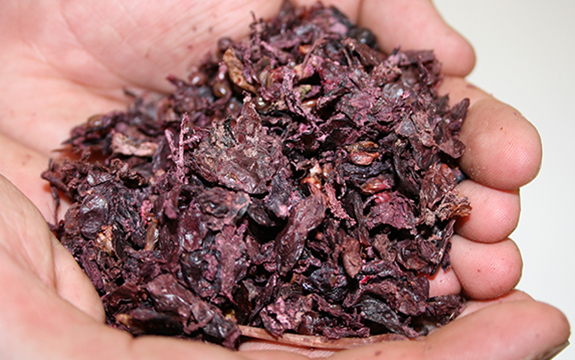New partnership brings innovative technology to wine production

In Summary
A new partnership between Swinburne and Dal Group Australia seeks to develop technology to transform winery waste into natural compounds that can be re-used in the winemaking process.
We’re interested in exploring what we can do within the parameters of winemaking to get the best possible product – and that’s all natural, not artificially manufactured.
Swinburne University of Technology is partnering with the wine industry to develop technology that transforms winery waste into natural compounds that can be re-used in winemaking.
Swinburne will provide research and development support for the wine and beverage business, DAL Group Australia (DGA).
Working with the university’s commercialisation unit in Swinburne Research, researchers from Swinburne’s Department of Chemistry and Biotechnology are building on a PhD research project to turn winery waste products into something more valuable.
“Australia produces around 1.8 million tonnes of wine grapes every year. After the grapes are crushed almost half of that amount – comprising skins, pulp, stalks and seeds – is disposed of as solid waste in landfill, polluting the environment,” says chemist Dr Avinash Karpe, whose initial PhD research project investigated turning this waste into biofuels.
The new partnership with DGA seeks to develop the technology to transform the waste into chemicals that can be re-used in the winemaking process.
As part of its strategy to expand its beverage offering globally, DGA acquired Southern Estate Wines earlier this year, giving the group the ability to form more strategic partnerships with customers and suppliers, improved process control and the opportunity to focus on new product development.
The Griffith facility is capable of producing 20 million litres of wine and also gives DGA the chance to expand into the broader beverage category.
“We’re interested in exploring what we can do within the parameters of winemaking to get the best possible product – and that’s all natural, not artificially manufactured,” a spokesperson for DGA says.
“The possible cost efficiencies to industry are simply astonishing. Never before have we seen such an opportunity.”
Chair of Swinburne’s Department of Chemistry and Biotechnology, microbiologist Professor Enzo Palombo says: “At the time we approached DGA, we were looking for a client for the technology we had developed.
“It became apparent that the wine industry had other possible applications so we started the conversation about how we could work with DGA, and the wine industry in general, to find solutions to other problems.
“In a way, we are acting as the R&D arm of their business.”

